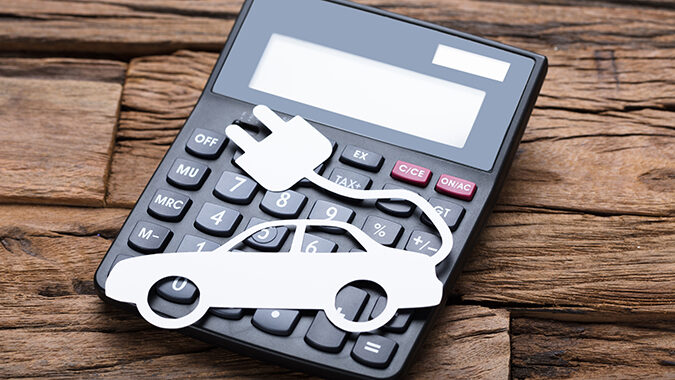New Jersey took a major step this week toward a ban on the sale of new gasoline-powered cars by 2035 with the filing of the Advanced Clean Cars II rule proposal with the Office of Administrative Law in a move that NJBIA said would become a financial burden to consumers.
“While we should all work to reduce carbon emissions, the ban of gas-powered cars in such an expedited time frame does not take costs or feasibility into account – and it is likely to result in a major increase in New Jersey residents who actually won’t be able to afford to drive,” NJBIA Deputy Chief Government Affairs Officer Ray Cantor said in a statement on Monday.
The phase-out of gas-powered vehicles would begin in the 2027 model year, with a mandated target of having electric vehicles (EVs) comprise 43% of new car sales. That percentage would increase each year, eventually reaching 100% by 2035.
“If targets are not reached under this mandate, it’s likely there will be a sizable penalty or surcharge imposed on the buyer of every non-EV car sold,” Cantor said. “So, we will see the real-world impacts of costs much sooner than 2035. This mandate will actually drive up the cost of all cars in New Jersey, new and used, by thousands of dollars.”
Jim Appleton, president of the New Jersey Coalition of Automotive Retailers (NJCAR) said Tuesday his organization also disagreed with the Murphy administration’s approach.
“The Governor’s plan will make new cars virtually unaffordable for working and middle-class consumers and will severely limit vehicle consumer choice,” Appleton said. “The governor’s plan to adopt ACCII would limit New Jersey consumer choice, drive up new vehicle costs and ultimately frustrate our shared goal of transforming the current vehicle fleet from internal combustion engine (ICE) to EV.”
“This heavy-handed government approach is likely to backfire, forcing manufacturers to send fewer vehicles to New Jersey, which will lead to consumers buying fewer new cars and holding on to their current ICE vehicles longer,” Appleton added.
In a press statement announcing the filing of the rule proposal, Gov. Phil Murphy said the state has made a $75 million investment in EVs and charging stations, including a $10 million appropriation in the recently enacted FY24 state budget to support more electric vehicles on the road. The DEP will use these funds to meet demand for installation of charging stations at businesses, multi-unit residential buildings, and public locations.
Cantor, however, said he doubted the state’s EV existing and planned charging infrastructure could support such a dramatic change in such a compressed timeframe.
“Such a steep ramp-up in electric-only vehicles over 12 years in New Jersey seems impractical, if not impossible...,” Cantor said. “Such a policy also begs the obvious question of where all this increased electricity will be sourced from.”
The state is expected to publish the proposal in the Aug. 21 New Jersey Register, starting a public comment period that will run through Oct. 20, according to state officials. Adopting the rule by the end of the 2023 calendar year will trigger the sales requirements to kick in by the 2027 new car model year.
Murphy also announced Monday that New Jersey has signed on to the Accelerating to Zero Coalition’s Zero Emission Vehicle (ZEV) Declaration, a landmark global agreement launched by the UK at the 26th UN Climate Change Conference of the Parties (COP26) in November 2021 and signed by 41 national governments and 74 cities, states, and regional governments so far.
New Jersey has signed on to Section 2C of the Declaration, which commits the state to a zero-emission vehicle future in alignment with the Paris Agreement goals, the governor said.
“Our commitment to bringing the ACCII proposal to fruition is a commitment to every New Jersey family and the air they breathe, air that will be cleaner and healthier tomorrow thanks to the steps we’re taking to reduce emissions today,” Murphy said. “That commitment is underscored by our signing of the ZEV Declaration, which recognizes that New Jersey is just one crucial piece of our global response to climate change.”
To reach NJBIA’s statement about the proposed rule, go here.




